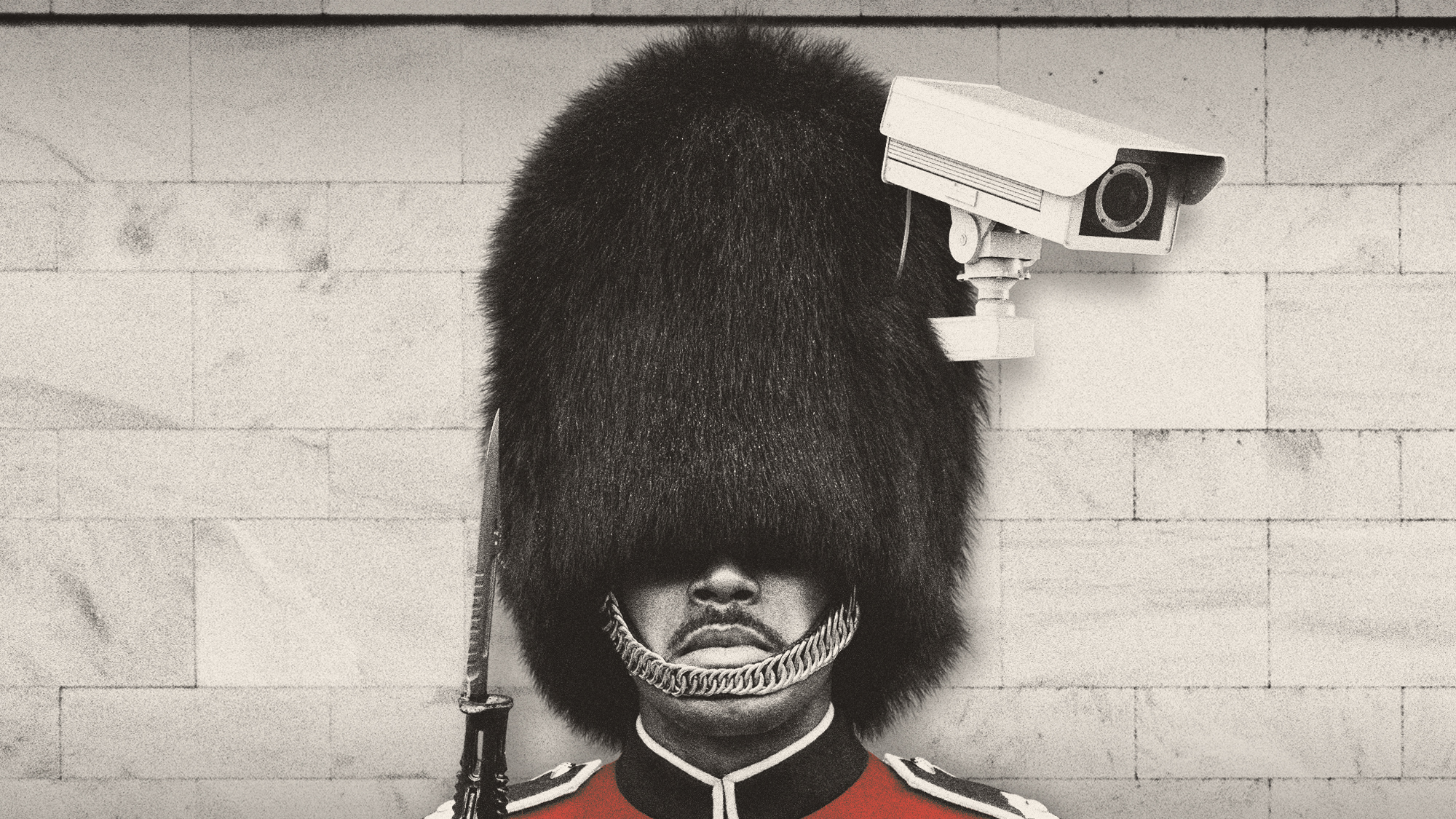South Korea's deepfake porn crisis
President Yoon Suk Yeol has announced a crackdown but is a wider issue being ignored?

A free daily email with the biggest news stories of the day – and the best features from TheWeek.com
You are now subscribed
Your newsletter sign-up was successful
South Korea's National Police Agency is investigating Telegram after the messaging app was accused of "abetting" the distribution of deepfake pornographic material, including doctored images of teenagers.
The country faces an "epidemic" of the digital sex crime, said Human Rights Watch, with "hundreds of women and girls" having fake images shared in messenger channels that boast up to 220,000 members.
What are deepfakes?
Images created by superimposing the face of a real person onto a body created by artificial intelligence are known as deepfakes. Offenders use Instagram and other social media platforms to save photos of victims, which are then used to create deepfake pornographic material.
The Week
Escape your echo chamber. Get the facts behind the news, plus analysis from multiple perspectives.

Sign up for The Week's Free Newsletters
From our morning news briefing to a weekly Good News Newsletter, get the best of The Week delivered directly to your inbox.
From our morning news briefing to a weekly Good News Newsletter, get the best of The Week delivered directly to your inbox.
It has become a phenomenon, of a sinister kind: there are now thousands of sites devoted to deepfake images. The victims are almost all women and South Korea is experiencing a particular avalanche of the problem.
What is happening and how bad is it?
A university student told the BBC that she received a message on Telegram telling her that "your pictures and personal information have been leaked – let's discuss".
Then she received a photo of herself taken a few years ago while she was still at school, followed by a second image using the same photo, in a fake, sexually explicit scenario. "I was petrified, I felt so alone," she told the broadcaster.
She is not alone: South Korea's police agency said that 297 cases of deepfake porn offences were reported in the first seven months of the year – up from 180 last year and nearly double the number in 2021, when these figures first began to be collated.
A free daily email with the biggest news stories of the day – and the best features from TheWeek.com
But the issue is "believed to be more serious than the official figures suggest", said The Guardian. One Telegram chatroom has attracted about 220,000 members who create and share deepfake images by doctoring photographs of women and girls and the authorities are being accused of not taking the issue seriously enough.
What is being done?
South Korea’s president, Yoon Suk Yeol, has ordered a crackdown on an epidemic of digital sex crimes targeting women and girls who become the unwitting victims of the trend. Police will "aggressively" pursue offenders in a seven-month campaign that started this week, with a focus on those who exploit children and teenagers.
But women’s rights groups argue that a wider problem is being ignored: misogyny in South Korean online culture. "First women were subjected to waves of verbal abuse online", said the BBC, and "then came the spy cam epidemic", where women "were secretly filmed using public toilets and changing rooms".
A statement signed by 84 women's groups said that "the root cause of this is structural sexism and the solution is gender equality". But Yoon has "denied the existence of structural sexism", slashed funding to victim support groups and is abolishing the government's gender equality ministry.
The country's leaders "seem to have had difficulty understanding the extraordinary and often lifelong harm these crimes cause", said Human Rights Watch.
What does Telegram say?
The app is "known for having a 'light touch' moderation stance", said the BBC, and it has been accused of "not doing enough to police content" and "particularly groups for years". This has made it a "prime space for criminal behaviour to flourish", said the broadcaster.
In 2019, a sex ring used Telegram to force women and children in South Korea into creating and sharing sexually explicit images of themselves. Although the police asked Telegram for help with their investigation, the app "ignored all seven of their requests", said the BBC.
In a statement to South Korea's Communications Standards Commission (KCSC), Telegram said the situation was "unfortunate", adding that it "apologised if there had been an element of misunderstanding".
It also confirmed that it had taken down 25 videos as requested by KCSC.
Chas Newkey-Burden has been part of The Week Digital team for more than a decade and a journalist for 25 years, starting out on the irreverent football weekly 90 Minutes, before moving to lifestyle magazines Loaded and Attitude. He was a columnist for The Big Issue and landed a world exclusive with David Beckham that became the weekly magazine’s bestselling issue. He now writes regularly for The Guardian, The Telegraph, The Independent, Metro, FourFourTwo and the i new site. He is also the author of a number of non-fiction books.
-
 ‘Poor time management isn’t just an inconvenience’
‘Poor time management isn’t just an inconvenience’Instant Opinion Opinion, comment and editorials of the day
-
 Bad Bunny’s Super Bowl: A win for unity
Bad Bunny’s Super Bowl: A win for unityFeature The global superstar's halftime show was a celebration for everyone to enjoy
-
 Book reviews: ‘Bonfire of the Murdochs’ and ‘The Typewriter and the Guillotine’
Book reviews: ‘Bonfire of the Murdochs’ and ‘The Typewriter and the Guillotine’Feature New insights into the Murdoch family’s turmoil and a renowned journalist’s time in pre-World War II Paris
-
 Executions are on the rise in the US after years of decline
Executions are on the rise in the US after years of declineThe Explainer This year has brought the highest number of executions in a decade
-
 Dash: the UK's 'flawed' domestic violence tool
Dash: the UK's 'flawed' domestic violence toolThe Explainer Risk-assessment checklist relied on by police and social services deemed unfit for frontline use
-
 Trump lambasts crime, but his administration is cutting gun violence prevention
Trump lambasts crime, but his administration is cutting gun violence preventionThe Explainer The DOJ has canceled at least $500 million in public safety grants
-
 Insects and sewer water: the alleged conditions at 'Alligator Alcatraz'
Insects and sewer water: the alleged conditions at 'Alligator Alcatraz'The Explainer Hundreds of immigrants with no criminal charges in the United States are being held at the Florida facility
-
 Why Rikers Island will no longer be under New York City's control
Why Rikers Island will no longer be under New York City's controlThe Explainer A 'remediation manager' has been appointed to run the infamous jail
-
 Narco subs are helping to fuel a global cocaine surge
Narco subs are helping to fuel a global cocaine surgeThe Explainer Drug smugglers are increasingly relying on underwater travel to hide from law enforcement
-
 How people-smuggling gangs work
How people-smuggling gangs workThe Explainer The Government has promised to 'smash' the gangs that smuggle migrants across the Channel. Who are they and how do they work?
-
 How secure are royal palaces?
How secure are royal palaces?The Explainer Royal family's safety is back in the spotlight after the latest security breach at Windsor